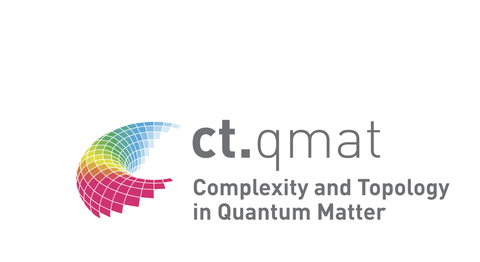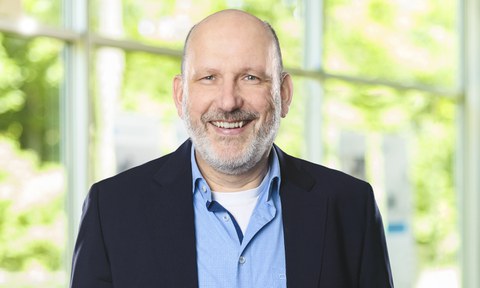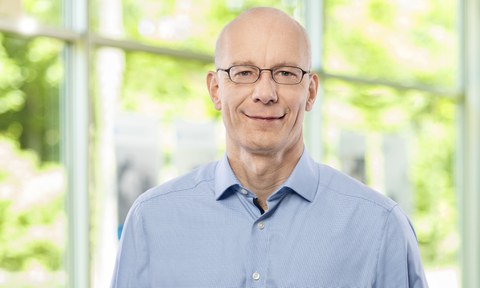Jun 22, 2020
With a bang towards new quantum technologies
Quantum scientists welcome the German government’s initiative to promote quantum technologies
Ultra-low temperatures, enormous pressure, or super-strong magnetic fields – quantum materials reveal exotic phenomena when studied in the laboratory under extreme conditions. Researchers of the Cluster of Excellence ct.qmat – Complexity and Topology in Quantum Matter are working to discover and understand these phenomena and to make them applicable under everyday conditions. To achieve this aim, they design topological quantum materials that can for instance transport electricity without loss. Established in 2019, ct.qmat links up Technische Universität Dresden with Julius-Maximilians-Universität Würzburg as the only Cluster of Excellence that traverses federal state boundaries.
The consortium of German Clusters of Excellence and research centres working in quantum science and technology, the Quantum Alliance, welcomes the German government’s trend-setting initiative to promote quantum technologies as part of the fiscal stimulus package. Quantum technologies are extremely efficient: quantum sensors can warn of earthquakes as well as of cerebral strokes, quantum cryptography can protect our privacy in the long term, and quantum computers can revolutionise the computer world. Quantum technologies harbour therefore considerable commercial potential which is based on the outstanding fundamental research carried out in Germany.
“Together with the other Clusters of Excellence of the German ‘Quantum Alliance’, the Würzburg-Dresden cluster ct.qmat is engaged in research on foundations of future quantum technologies. We are convinced that information technology in the 21st century will be decisively shaped by quantum physics, and we are delighted that this research finally plays an important role in the Federal Government’s ‘future pact’” comments the spokesperson of the Würzburg branch of the cluster, Prof. Ralph Claessen.
Responding to COVID-19 pandemic crisis, the German government has launched a funding programme amounting to two billion euros as part of its Institutional Strategy which is unique in the Western world. This is where the Quantum Alliance comes in: Of central importance are the universities that train the highly qualified and urgently needed “quantum engineers” of the future.
“The 25 founding members of ct.qmat are among the leading scientists in physics, chemistry and materials science. Today, almost 200 researchers from 29 nations are working in the Cluster of Excellence to develop new materials for quantum computing and quantum sensing technologies and are preparing their commercial application”, adds Prof. Matthias Vojta, spokesperson of the Dresden branch of the cluster.
Fundamental research is far from being complete. But it is already clear today that, in addition to the widely discussed quantum computer, its completely new hardware and software, the quantum internet, novel quantum materials as well as novel sensors, e.g., for imaging in medical devices, will open doors to the technologies of the future and thus offer opportunities for innovative business fields and start-up companies in Germany.
Background
The economic stimulus package adopted by the German government earmarks two billion euros for the promotion of quantum technologies featuring future of Germany. Remarkably, this future technology is being promoted more strongly than in any other western country to date. The intention of this package is to fund cutting-edge clusters in the fields of quantum communication, quantum sensor technology, quantum computing and simulation, as well as a competition to construct a quantum computer on competing hardware platforms.
The Quantum Alliance is a consortium of the five Clusters of Excellence funded by the German Research Foundation (DFG) and other research centres working in quantum science. It is pivotal for the further development of this rapidly evolving field in Germany. The Quantum Alliance considers itself a driving force behind quantum technologies and the lynchpin of education in the Quantum Sciences.
Further information
https://www.ctqmat.de
https://quantum-alliance.de
https://www.quantentechnologien.de
Contact Cluster of Excellence ct.qmat:
Prof Matthias Vojta
TU Dresden, Chair of Theoretical Solid State Physics
Tel.: +49 351 463 34135
Prof Ralph Claessen
Julius-Maximilians-Universität Würzburg, Chair of Experimental Physics 4
Tel.: +49 931 318-5732



